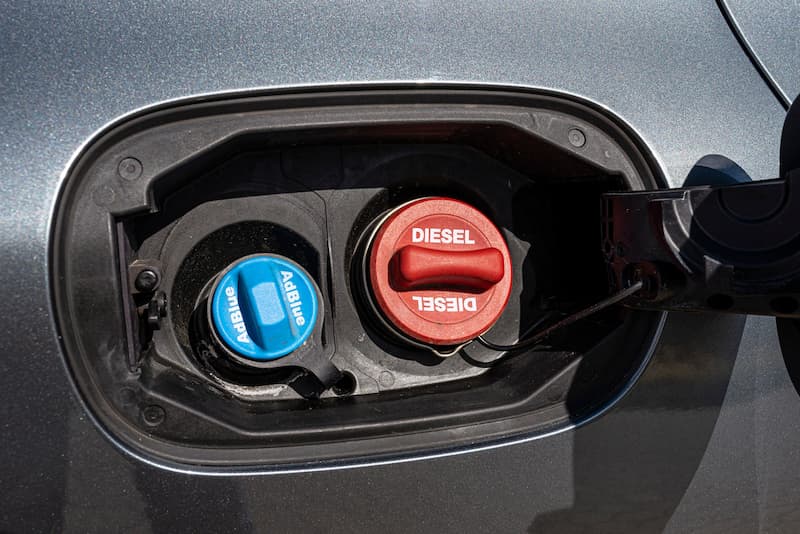Why HVO Is the Future of Diesel Fuel for Commercial Fleets
As UK commercial fleets face increasing pressure to reduce their carbon footprint and improve their sustainability, leading to many companies are turning to alternative fuels to power their fleets. HVO is already proving itself a superior choice and is predicted to be the future diesel fuel source.
As experts in fuel management, we’ll explore why HVO is the future of diesel fuel for commercial businesses and how it can help companies meet their sustainability goals.

What Is HVO?
Hydrotreated vegetable oil (HVO) is a renewable diesel-like fuel that is the product of many years of research and development to use various waste materials, such as used cooking oil and animal fats, to create vehicle fuel.
HVO is produced through a hydrotreating process, which removes impurities and saturates the hydrocarbons to produce a fuel with similar properties to traditional diesel fuel but with significantly reduced pollutants. This and other capabilities provide commercial fleet managers with significant opportunities to improve fuel efficiency.
Benefits for Commercial Fleets
HVO already provides several benefits for commercial businesses, making it an attractive alternative to traditional diesel fuel for the foreseeable future. One of the most significant benefits of HVO is its lower emissions and improved air quality.
Increased Sustainability
Owners of AdBlue storage will be familiar with the benefits of fuel additives, and HVO is predicted to provide similar but improved results. HVO has a higher cetane number than diesel fuel, which means it burns more cleanly and emits fewer pollutants, such as particulate matter and nitrogen oxides. In addition, this sustainable and renewable fuel source is produced from the previously mentioned oils, fats and other waste materials and has a lower carbon footprint than traditional diesel fuel.
Improved Performance
HVO has a higher energy density and lower viscosity than diesel fuel. This creates improved engine performance and, as a result, better fuel efficiency leading to lower fuel consumption and costs during daily operations. The improved performance even helps improve maintenance costs by reducing the need for checks and repairs.
HVO Transition Considerations
While HVO offers several benefits as a renewable diesel-like fuel, some considerations must be considered.
A primary consideration is regulatory and compliance considerations. HVO is subject to various regulations and standards, such as fuel quality standards and emissions regulations. Therefore, businesses that use HVO must comply with these regulations and standards to avoid penalties and fines.
Another consideration is the availability and cost of HVO. While HVO is produced from various waste materials, the production process can be expensive, and as demand increases, supply and costs may be an issue. Fortunately, this is solved with the investment of a complete onsite fuel management package designed to store HVO.
Benefits of Onsite Fuel Storage
Onsite fuel storage tanks offer many benefits for commercial fleet managers. One of the most significant advantages is the ability to purchase fuel in bulk at wholesale prices. This offers significantly reduced fuel costs compared to forecourt prices.
Wholesale Prices
By purchasing large quantities, fleet managers can take advantage of lower fuel prices and avoid the additional costs associated with frequent fuel deliveries. Additionally, access to onsite HVO diesel fuel pumps helps to reduce downtime and increase productivity. With fuel readily available onsite, fleet managers avoid sending drivers to refuel at off-site locations, which can result in lost time and decreased productivity.
Reliable Fuel Quality
Another benefit of onsite fuel storage is increased control over fuel quality. With onsite storage and fuel monitoring, fleet managers ensure that the fuel being used by their vehicles meets the required quality standards they desire from either AdBlue storage or HVO fuel solutions. This can be particularly important for fleets operating in remote locations or areas where fuel quality may be a concern. By storing fuel onsite, fleet managers can also minimise the risk of fuel contamination, which can be costly to address and can result in vehicle downtime.
Increased Control
Onsite fuel storage can also provide greater flexibility and control for fleet managers. Combined with our fuel management systems, fleet managers can create and adjust their fuelling schedules to meet their operations’ needs and increase efficiency dramatically. This can be particularly beneficial for fleets operating in areas with limited fuel availability or fluctuating fuel demands.
Reduced Environmental Impact
Onsite fuel storage further assists your fleet’s plans to reduce the environmental impact of your daily operations. Additionally, some onsite fuel storage systems, such as those that use renewable fuels like HVO and AdBlue, are designed to be more environmentally friendly. By choosing renewable fuels and implementing efficient fuel management practices, fleet managers help reduce their fleet’s environmental impact while improving their bottom line.
Onsite Fuel Management Solutions from Fueltek
As members of the Road Haulage Association (RHA) and the Association for Petroleum and Explosives Administration (APEA), we have a proven reputation for designing and developing the latest high-quality fuel storage, monitoring and management solutions that have helped many businesses identify cost savings and implement best practices.
Our fuel management storage and software use sophisticated technology to create more environmentally friendly options for our clients, including AdBlue pumps, to help businesses plan, cut costs, improve efficiency, and create a more sustainable commercial fleet.
Contact us to discover how our effective solutions will benefit your business’s daily operations.










